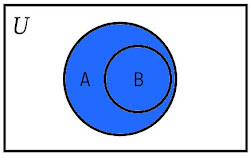Formulas for abbreviated multiplication. Formula for the square of a binomial - (a\pm b)^2=a^2\pm 2ab+b^2
With this and the following lessons, we will try together to overcome the difficulties in solving various problems in which these formulas are applied. Let us recall them before we begin:
1. (a \pm b)^{2}=a^{2}\pm 2ab+b^{2};
2. (a-b)(a+b)=a^{2}-b^{2};
3. (a \pm b)^{3}=a^{3}\pm 3a^{2}b+3ab^{2}\pm b^{3};
4. (a \pm b)(a^{2}\pm ab+b^{2})=a^{3}\pm b^{3}.
In this article, we consider the formulas (a\pm b)^{2}=a^{2}\pm 2ab+b^{2}.
Let's solve a few problems to show how we will apply them:
Problem 1 Perform the grading (2x+y)^{2}.
Solution: Let's consider the formula (a+b)^{2}=a^{2}+2ab+b^{2}. In our expression, 2x plays the role of a and y plays the role of b. Let us now write 2x instead of a and y instead of b. Thus we get that (2x+y)^{2}=(2x)^{2}+2.2x.y+y^{2}. Now we need to exponentiate (2x)^{2}. Let's recall the following property learned in 6th grade (a.b)^{n}=a^{n}.b^{n}, hence (2x)^{2}=2^{2}.x^{2}=4x^{2}. Let us now, having made this clarification, return to the problem in which we obtained that:
(2x+y)^{2}=(2x)^{2}+2.2x.y+y^{2}=
=4x^{2}+4xy+y^{2}.
Problem 2 Perform the grading (3n+4m)^{2}.
Solution: again apply the formula (a+b)^{2}=a^{2}+2ab+b^{2}. This time a=3n and b=4m. Thus we get:
(3n+4m)^{2}=(3n)^{2}+2.3n.4m+(4m)^{2}=
=9n^{2}+24mn+16m^{2}.
Problem 3 Perform the grading of (9k-3x)^{2}.
Solution: Apply the formula (a-b)^{2}=a^{2}-2ab+b^{2} where a=9k and b=4m, hence:
(9k-3x)^{2}=(9k)^{2}-2.9k.3x+(3x)^{2}=
=81k^{2}-54kx+9x^{2}.
Problem 4 Perform the grading of (-5+3x)^{2}.
Solution: Apply the shift property to the expression in parentheses and obtain that (-5+3x)^{2}=(3x-5)^{2}. Now apply the formula (a-b)^{2}=a^{2}-2ab+b^{2} and obtain that:
(3x-5)^{2}=(3x)^{2}-2.3x.5+5^{2}=
=9x^{2}-30x+25.
Problem 5 Perform the grading of (x+y+z)^{2}.
Solution: Of course, we may prefer a=x and b=(y+z). Thus, after applying the formula, we get: (x+y+z)^{2}=(x+y)^{2}+2(x+y)z+z^{2}=
=x^{2}+2xy+y^{2}+2xz+2yz+z^{2}=
=x^{2}+y^{2}+z^{2}+2xy+2xz+2yz.
6 Problem Simplify the expression x^{2}+64-(x-8)^{2}.
Solution: We apply the formula and obtain that x^{2}+64-(x-8)^{2}=x^{2}+64-(x^{2}-16x+64). We dissolve the parentheses and change the signs of the addends in them
x^{2}+64-(x^{2}-16x+64)=
=x^{2}+64-x^{2}+16x-64=16x.
7 Problem Perform the operations indicated and normalize (a-b-3)^{2}+(a-b)^{2}.
Solution:
(a-b)^{2}-2(a-b)3+3^{2}+a^{2}-2ab+b^{2}=
=a^{2}-2ab+b^{2}-6a+6b+9+a^{2}-2ab+b^{2}=
=2a^{2}+2b^{2}-6a+6b+9.
8 Problem Perform the above operations and normalize (3-x)^{2}-(4x+1)^2.
Solution:
(3-x)^{2}-(4x+1)^2=
=3^{2}-2.3.x+x^{2}-[(4x)^{2}+2.4x.1+1^{2}]=
=9-6x+x^{2}-(16x^{2}+8x+1)=
=9-6x+x^{2}-16x^{2}-8x-1=
-15x^{2}-14x+8.
9 Problem Find the numerical value of the expression (x+1)(y-2)-(x-y-2)^{2} given x=-|-5+4| and y=-(-5+4)^{2}.
Solution: For the first two brackets we will multiply by the "each by each" rule, and for (x-y-2)^{2} we will apply the formula (a-b)^{2}=a^{2}-2ab+b^{2}. Thus we get:
(x+1)(y-2)-(x-y-2)^{2}=
=xy-2x+y-2-[(x-y)^{2}-2(x-y).2+2^{2}]=
=xy-2x+y-2-(x^{2}-2xy+y^{2}-4x+4y+4)=
=xy-2x+y-2-x^{2}+2xy-y^{2}+4x-4y-4=
=-x^{2}-y^{2}+3xy+2x-3y-6.
Now it is time to calculate the values of x=-|-1|=-1 and y=-(-1)^{2}=-1. Заместваме израза -(-1)^{2}-(-1)^{2}+3(-1)(-1)+2(-1)-3(-1)-6=-1-1+3-2+3=2.
10 Problem Using the shortcut multiplication formulas, rationally calculate 13.4^{2}+2,13.4,6,6+6.6^{2}.
Solution: This is the familiar formula (a+b)^{2}=a^{2}+2ab+b^{2} with left and right sides swapped. If we substitute a=13.4 and b=6.6 into a^{2}+2ab+b^{2}=(a+b)^{2}, we get 13.4^{2}+2.13.4.6.6+6.6^{2}=(13.4+6.6)^{2}=20^{2}=400.
11 Problem Using the shortcut multiplication formulas, rationally calculate 36^{2}-2.36.6+6^{2}.
Solution: It is now easy to see that this is the formula (a-b)^{2}=a^{2}-2ab+b^{2} written from left to right, hence 36^{2}-2.36.6+6^{2}=(36-6)^{2}=30^{2}=900.
12 Problem Using the formulas for truncated multiplication, rationally calculate 59^2.
Solution: Now apply the formula (a-b)^2=a^2-2ab+b^2 and obtain that (60-1)^2=60^2-2.60.1+1^2=3600-120+1=3481.
Problem 13 Prove the identity (x+y)^2+(x-y)^2=2(x^2+y^2).
Solution: When we need to prove an identity, we need to show that the left side of the equality is equal to the right side of the equality, for this let us take the left side of our equality and reveal the parentheses in it:
A=(x+y)^2+(x-y)^2=x^2+2xy+y^2+x^2-2xy+y^2=2x^2+2y^2.
Now we take the right hand side and reveal the parentheses:
B=2(x^2+y^2)=2x^2+2y^2.
Obviously, A=B and therefore the equality is identical.
Homework assignments
1. Perform the classification:
a) (y-5)^{2}; b) (3y+2)^{2}; c) (-2x+4y)^2; d) (\frac{1}{4}x-4y)^{2}; e) (x+2y-3z)^2;
f) (2x-y+1)^2; g) (\frac{1}{3}y^2-3x)^2.
2. Convert the expression in polynomial form to normal form:
a) (3x-4)^{2}+3; b) 2(6n+1)^{2}+1; c) -2(k+2t)^{2}-4t^2+1;
d) (2t-3)^{2}-4t^2-9; e) (11t+5)^2-121t^2-25; f) (\frac{1}{2}y+2)^2-2(\frac{3y^2}{8}-1);
g) (-2+m)^2-(2-m)^2-3(-m-2)^2.
3. Simplify the expression:
a) (x+1)^2+(1-2x)^2; b) (2x-y)^2-(x-y)(2x+1);
c) (x-2)^2+(x-3)^2-2x(x-5); d) 2(b+2)^2-(3b-1)^2.
4. Represent the expression 4(y-2)+(y+1)^2 by a normal polynomial.
5. Prove the identity (ax+ay)^2=a^2(x^2+y^2).
6. Using the formula (a+b)^2=a^2+b^2, calculate:
a) 51^2; b) 43^2; c) 999^2; d) 73^2+2.73.27+27^2; e) 126^2-2.126.76+76^2.
7. Prove that the expression (x-7)^2+2(x-7)(1-x)+(1-x)^2 does not depend on the value of x.
8. Prove that the value of the expression Y=(\frac{y}{2}-1)(\frac{y}{2}+4)-(\frac{y}{2}+2)^2+\frac{1}{2}y does not depend on the value of y.
9. Find the smallest value of the expression (x-2)^2+4x+1.
10. Find the largest value of the expression 2(8-3x)-(3-x)^2.
11. Find the numerical value of the expression:
a) 3(a-^frac{1}{3}b)^2+^frac{(a-3b)^2}{3} at a=-1, b=0;
b) 2(\frac{1}{2}x-2)^2-^frac{(x-2)^2}{2} at x=^frac{(-2)^5.54}{-3^3}.
12. Put the expression A=(y-b)(y+2b)+(y-b+1)^2 into polynomial form in normal form. For which value of the parameter b is the coefficient of the first-degree term equal to -7?
13. Simplify the expression (3-x)^2-x(x-3)+9 (National mathematics external assessment for grade 7 2020).
14. Find the normal polynomial that is congruent to the expression:
a) (a^2+1)^2+(a-1)(a^2+1)-a^2;
b) 3(a^2+1)^2+2(a-1)(a^2+1)-5(a-1)^2-4(0,75a^4+3a-1).
15. Prove that for any value of the variable y, the expression A=2(2y+1)^2-(4y+3)^2+8y(y+2) takes the same numerical value.
16. Find the value of the expression a(a+b)^2-b(a-b)^2+2b(a^2+b^2) at a=2.5 and b=0.5.



Коментари
Публикуване на коментар